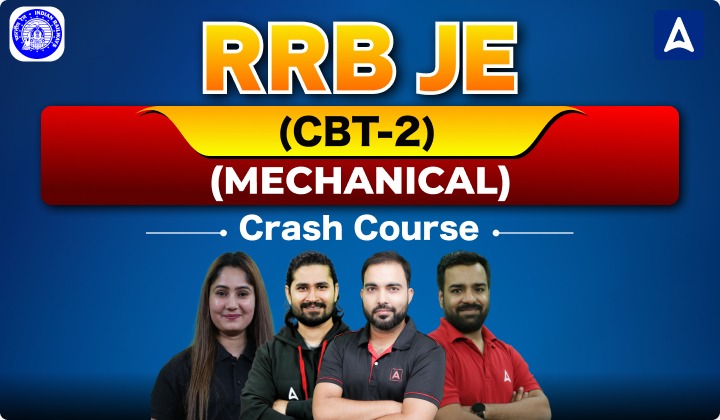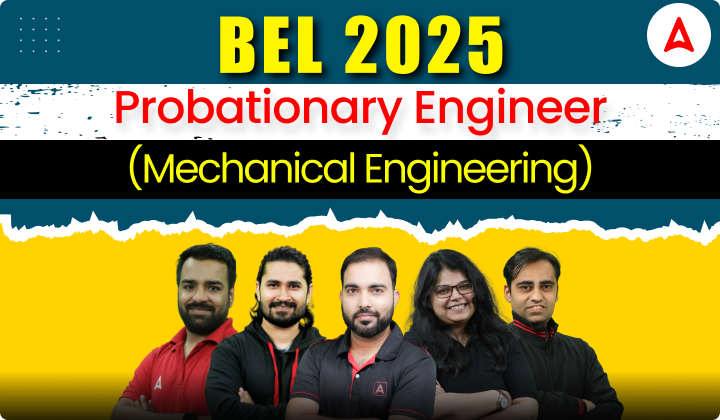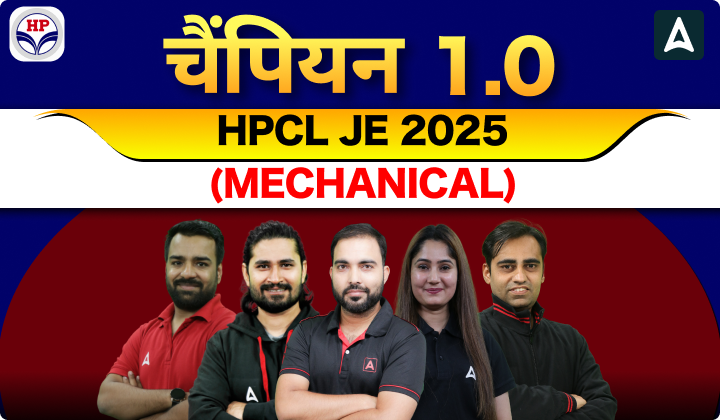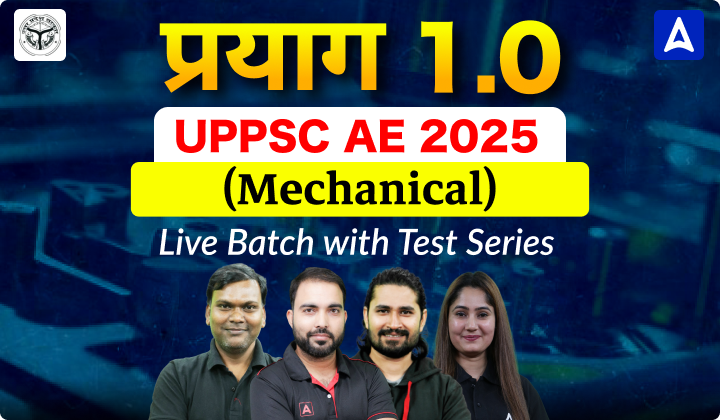Table of Contents
GATE Syllabus 2022 Agricultural Engineering
GATE Syllabus 2022 Agricultural Engineering: IIT Kharagpur is the conducting authority for GATE Exam 2022. GATE Exam 2022 is for the candidates who are aspiring to get admission into M.E./M.Tech/Ph.D. at the IITs, NITs, IIITs, and CFTIs. GATE Score 2022 is also useful for getting a reputed job as an engineer in some Public Sector Undertakings. GATE 2022 Score would be valid for three years after the announcement of GATE Result 2022. The total number of papers has been increased to 29 Subjects by adding two new subject papers. These Two new papers are GE (Geomatics Engineering) and NM (Naval Architecture and Marine Engineering). GATE Exam 2022 will be conducted on 05th, 06th, 12th, and 13th February 2022. To get desired job or college through GATE Exam 2022 for Agricultural Engineer, the candidates must get marks more than GATE Cut Off 2022. GATE Exam 2022 dates are announced by IIT Kharagpur on the official website. To get good marks in GATE Exam 2022 for Agricultural Engineer, the candidates must know GATE Syllabus 2022 Agricultural Engineering in depth. If they plan and strategize well according to GATE Syllabus 2022 for Agricultural Engineer, then they can grasp and revise the concepts very well to ace GATE Exam 2022 for Agricultural Engineer. In this article, we have covered everything regarding GATE Syllabus 2022 for Agricultural Engineer. The candidates must read the full article to know about GATE Syllabus 2022 for Agricultural Engineer and shall bookmark this website for further updates about GATE Exam 2022 for Agricultural Engineer.
GATE Syllabus 2022 Agricultural Engineering – Overview
| GATE Syllabus 2022 Agricultural Engineering | |
| Name of Conducting Authority | IIT Kharagpur |
| Name of Exam | Graduate Aptitude Test in Engineering |
| Category | Engg Jobs |
| Mode of GATE Exam 2022 | Online |
| Total Number of Papers | 29 |
| GATE Exam 2022 Admit Card release date | 03rd January 2022 |
| GATE Exam 2022 date | 05th February 2022 06th February 2022 12th February 2022 13th February 2022 |
| GATE 2022 Official Answer Key Release Date | 10 days after the exam |
| GATE Result 2022 | 17th March 2022 |
| Official Website | @gate.iitkgp.ac.in |
GATE Exam 2022
GATE Exam 2022: Graduate Aptitude Test in Engineering is one of the most reputed examinations in India. It opens so many opportunities for candidates to grow their careers. GATE Exam 2022 is a computer-based standardized test conducted at the national level in India with an aim to examine the understanding of students in subjects like Engineering and Science.
GATE Exam Pattern 2022 Agricultural Engineering
GATE Exam Pattern 2022 Agricultural Engineering: The GATE 2022 Exam for Agricultural Engineer will ask questions to check your Application, Analysis, Comprehension, Recall, and Synthesis abilities. All the questions will be Either MCQ or NAT (Numerical Answer Type). According to the new GATE 2022 Exam Pattern for Agricultural Engineer, Some MSQ questions will also be there in the paper where more than one answer can be correct out of four given choices.
The candidates must check GATE Exam Pattern 2022 for Agricultural Engineer through the table given below to get a clear idea about GATE Exam 2022 for Agricultural Engineer so that they can ace GATE Exam 2022 for Agricultural Engineer.
| GATE Exam Pattern 2022 Agricultural Engineering | |
| GATE Exam 2022 Mode | Computer Based Test (Online) |
| GATE Exam 2022 Duration | 3 Hours |
| GATE Exam 2022 No. of Subjects | 29 Subjects |
| GATE Exam 2022 Total Marks | 100 Marks |
| GATE Exam 2022 Number of Questions | 10 (GA) + 55 (subject) = 65 Questions |
| GATE Exam 2022 Type of Questions | Multiple Choice Questions, Multiple Select Questions, and Numerical Answer Type Questions |
GATE Syllabus 2022 Agricultural Engineering PDF
GATE Syllabus 2022 Agricultural Engineering PDF: The candidates can download GATE Syllabus 2022 Agricultural Engineering PDF through the direct link given below for the ease of candidates. The candidates must know GATE Syllabus 2022 Agricultural Engineering to ace GATE 2022 and get admission in a reputed college or job in a reputed organization for Agricultural engineers. Knowing GATE Syllabus 2022 will help the candidates aspiring for GATE 2022 to get good marks and success as they can plan and strategize beforehand according to GATE Syllabus 2022 Agricultural Engineering.
Click to download GATE Syllabus 2022 Agricultural Engineering PDF
GATE Syllabus 2022 Agricultural Engineering
Section 1: Engineering Mathematics
Linear Algebra:
- Matrices and determinants,
- linear and orthogonal transformations,
- Caley Hamilton theorem;
- Eigenvalues and Eigenvectors,
- solutions of linear equations.
- Calculus: Limit, continuity and
- differentiability;
- partial derivatives;
- homogeneous function – Euler’s theorem on homogeneous functions,
- total differentiation;
- maxima and minima of function with several independent variables;
- sequences and series – infinite series,
- tests for convergence;
- Fourier,
- Taylor and MacLaurin series.
- Vector Calculus: Vector differentiation,
- scalar and vector point functions,
- vector differential operators – del,
- gradient;
- divergence and curl;
- physical interpretations- line,
- surface and volume integrals;
- Stokes,
- Gauss and Green’s theorems.
- Differential Equations: Linear and non-linear first order
- Ordinary Differential Equations (ODE);
- homogeneous differential equations,
- higher order linear ODEs with constant coefficients;
- Laplace transforms and their inverse;
- Partial Differential Equations – Laplace,
- heat and wave equations
Probability and Statistics:
- Mean, median,
- mode and standard deviation;
- random variables; Poisson,
- normal and binomial distributions;
- correlation and regression analysis.
- Numerical Methods: Solutions of linear and non-linear algebraic equations;
- numerical integration – trapezoidal and Simpson’s rule;
- numerical solutions of ODEs.
Section 2: Farm Machinery
- Machine Design: Design and selection of machine elements – gears,
- pulleys, chains and sprockets and belts;
- overload safety devices used in farm machinery;
- measurement of force, stress, torque,
- speed, displacement and acceleration on machine elements –
- shafts, couplings,
- keys, bearings and knuckle joints.
- Farm Machinery: Soil tillage;
- forces acting on a tillage tool;
- hitch systems and hitching of tillage implements;
- functional requirements,
- principles of working,
- construction and operation of manual,
- animal and power operated equipment for tillage,
- sowing, planting,
- fertilizer application,
- intercultivation, spraying,
- mowing, chaff cutting,
- harvesting and
- threshing calculation of performance
- parameters – field capacity,
- efficiency,
- application rate and losses;
- cost analysis of implements and tractors.
Section 3: Farm Power
- Sources of Power: Sources of power on the farm –
- human, animal,
- mechanical, electrical, wind,
- solar and biomass; bio-fuels.
- Farm Power: Thermodynamic principles of I.C. engines;
- I.C. engine cycles; engine components;
- fuels and combustion;
- lubricants and their properties;
- I.C. engine systems – fuel, cooling, lubrication,
- ignition, electrical, intake and exhaust;
- selection, operation, maintenance and
- repair of I.C. engines;
- power efficiencies and measurement;
- calculation of power,
- torque, fuel consumption,
- heat load and
- power losses;
- performance index,
- cost analysis of implements and tractors.
- Tractors and Power tillers: Type, selection, maintenance and
- repair of tractors and power tillers;
- tractor clutches and brakes;
- power transmission systems – gear trains,
- differential, final drives and
- power take-off;
- mechanics of tractor chassis;
- traction theory;
- three point hitches – free link and
- restrained link operations;
- steering and hydraulic control systems used in tractors;
- tractor tests and performance;
- human engineering and safety considerations in design of tractor
- and agricultural implements.
Section 4: Soil and Water Conservation Engineering
- Fluid Mechanics: Ideal and real fluids,
- properties of fluids;
- hydrostatic pressure and its measurement;
- continuity equation,
- kinematics and dynamics of flow;
- Bernoulli’s theorem;
- laminar and turbulent flow in pipes,
- Darcy- Weisbach and Hazen-Williams equations,
- Moody’s diagram;
- flow through orifices,
- weirs and notches;
- flow in open channels,
- dimensional analysis – concepts of geometric
- dimensionless numbers.
Soil Mechanics:
- Engineering properties of soils;
- fundamental definitions and relationships;
- index properties of soils;
- permeability and seepage analysis;
- shear strength,
- Mohr’s circle of stress, active
- and passive earth pressures;
- stability of slopes,
- Terzaghi’s one dimensional soil consolidation theory.
Hydrology:
- Hydrological cycle and measurement of its components;
- meteorological parameters and their measurement;
- analysis of precipitation data;
- runoff estimation;
- hydrograph analysis,
- unit hydrograph theory and application;
- streamflow measurement;
- flood routing,
- hydrological reservoir
- and channel routing,
- Infiltration – indices and equations,
- drought and its classification.
Surveying and Leveling:
- Measurement of distance and area;
- instruments for surveying and leveling;
- chain surveying,
- methods of traversing;
- measurement of angles and bearings,
- plane table surveying;
- types of leveling;
- theodolite traversing;
- contouring; total station,
- introduction to GPS survey,
- computation of areas and volume.
Soil and Water Erosion:
- Mechanics of soil erosion – wind and water erosion:
- soil erosion types,
- factors affecting erosion;
- soil loss estimation;
- biological and engineering measures to control erosion;
- terraces and bunds;
- vegetative waterways;
- gully control structures,
- drop, drop inletand chute
- spillways; earthen dams.
Watershed Management:
- Watershed characterization and
- land use capability classification;
- water budgeting in watershed,
- rainwater harvesting,
- check dams and farm ponds.
Section 5: Irrigation and Drainage Engineering
Soil-Water-Plant Relationship:
- Water requirement of crops;
- consumptive use and evapotranspiration;
- measurement of infiltration,
- soil moisture and
- irrigation water infiltration.
Irrigation Water Conveyance and Application Methods:
- Design of irrigation channels and
- underground pipelines;
- irrigation scheduling;
- surface, sprinkler and
- micro irrigation methods,
- design and evaluation of irrigation methods;
- irrigation efficiencies.
Agricultural Drainage:
- Drainage coefficient;
- planning, design and
- layout of surface and sub-surface
- drainage systems;
- leaching requirement and salinity control;
- irrigation and drainage water quality
- and reuse;
- non-conventional drainage system.
Groundwater Hydrology:
- Groundwater occurrence;
- Darcy’s Law,
- steady and unsteady flow in confined and unconfined aquifers,
- groundwater exploration techniques;
- overview of groundwater
- recharge estimation and
- artificial recharge techniques.
Wells and Pumps:
- Types of wells,
- steady flow through wells;
- design and construction of water wells;
- classification of pumps;
- pump characteristics;
- pump selection and installation.
Section 6: Agricultural Process Engineering
- Engineering properties of agriculture produce: Physical, \
- thermal, frictional, rheological and electrical properties.
Evaporation and Drying:
- Concentration and drying of liquid foods – evaporators,
- tray, drum and
- spray dryers;
- hydrothermal treatments;
- drying and milling of cereals,
- pulses and oilseeds;
- drying kinetics;
- psychrometry – properties of air-water vapor mixture.
Size Reduction and Material Handling:
- Mechanics and energy requirement in size reduction of agriculture produce;
- particle size analysis for comminuted solids;
- size separation by screening;
- fluidization of granular solids-pneumatic,
- bucket, screw and belt conveying;
- cleaning and grading;
- effectiveness of separation;
- centrifugal separation of solids,
- liquids and gases;
- homogenization;
- filtration and membrane separation.
Processing of Agriculture Produce:
- Processing of seeds, spices,
- fruits and vegetables;
- value addition of agriculture produce.
Storage Systems:
- Controlled and modified atmosphere storage;
- perishable food storage,
- godowns,
- bins and grain silos,
- packaging material and machines
Section 7: Dairy and Food Engineering
- Heat and Mass Transfer: Steady state heat transfer in conduction,
- convection and radiation;
- transient heat transfer in simple geometry;
- working principles of heat exchangers;
- diffusive and convective mass transfer;
- simultaneous heat and mass transfer in agricultural processing operations;
- material and energy balances in food processing systems;
- water activity,
- sorption and
- desorption isotherms.
Preservation of Food:
- Kinetics of microbial death – pasteurization and
- sterilization of milk and other liquid foods;
- preservation of food by cooling and freezing;
- refrigeration and cold storage basics and applications.
GATE Syllabus 2022 Agricultural Engineering FAQs
Q1. Where can I check GATE Syllabus 2022 Agricultural Engineering?
Ans. You can check GATE Syllabus 2022 Agricultural Engineering in this article.
Q2. How can I download GATE Syllabus 2022 Agricultural Engineering PDF?
Ans. You can download GATE Syllabus 2022 Agricultural Engineering PDF through the direct link available in the article.
Now keep yourself updated with Latest Engineering Government Jobs 24×7 Download ADDA247 App Now! CLICK HERE


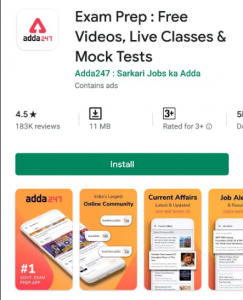

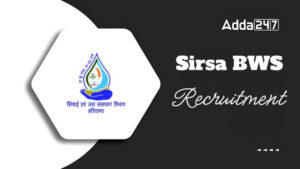 Sirsa BWS Apprentice Recruitment 2025, A...
Sirsa BWS Apprentice Recruitment 2025, A...
 NTPC Green Energy Recruitment 2025 Notif...
NTPC Green Energy Recruitment 2025 Notif...
 GSL Trainee Project Executive Recruitmen...
GSL Trainee Project Executive Recruitmen...








